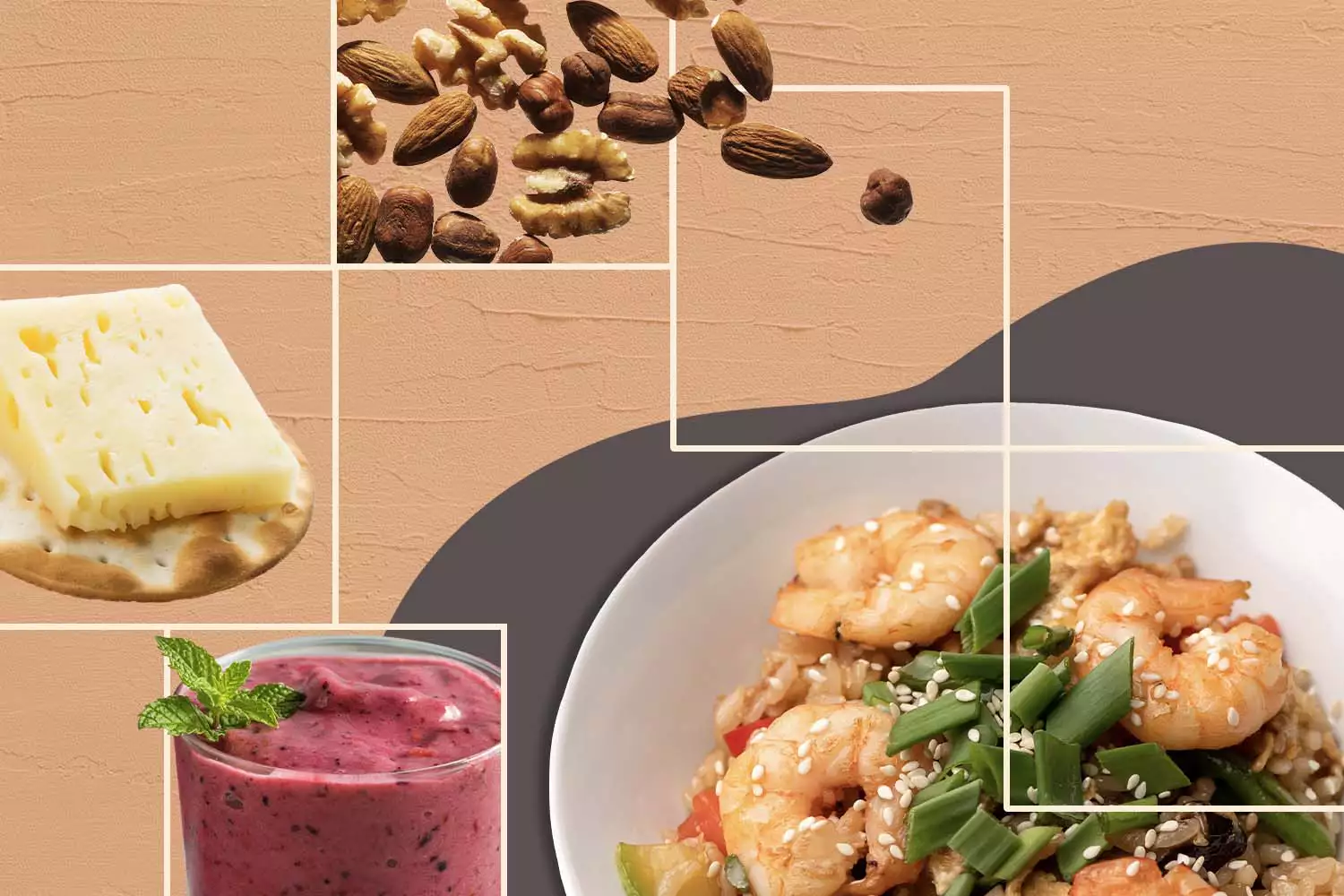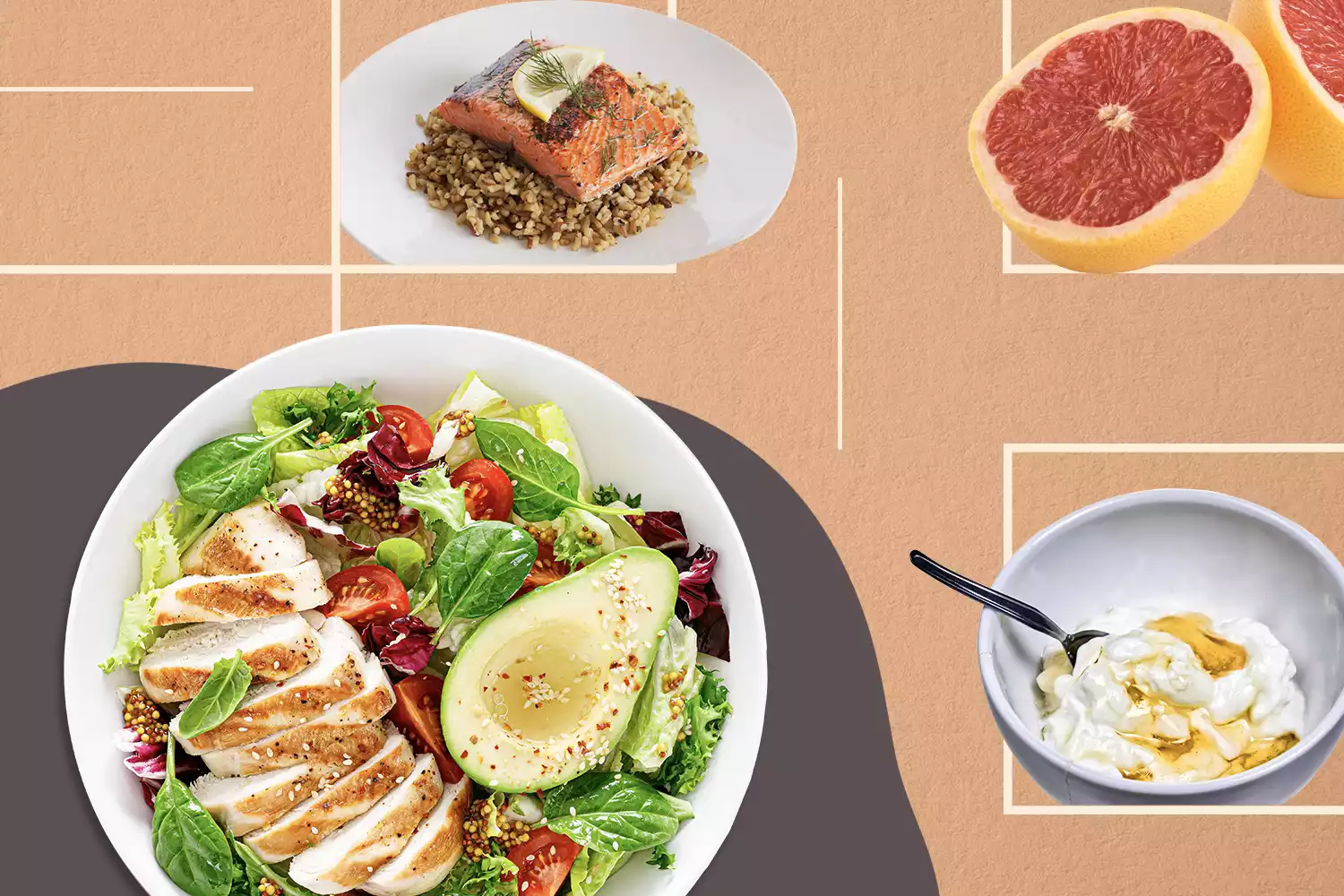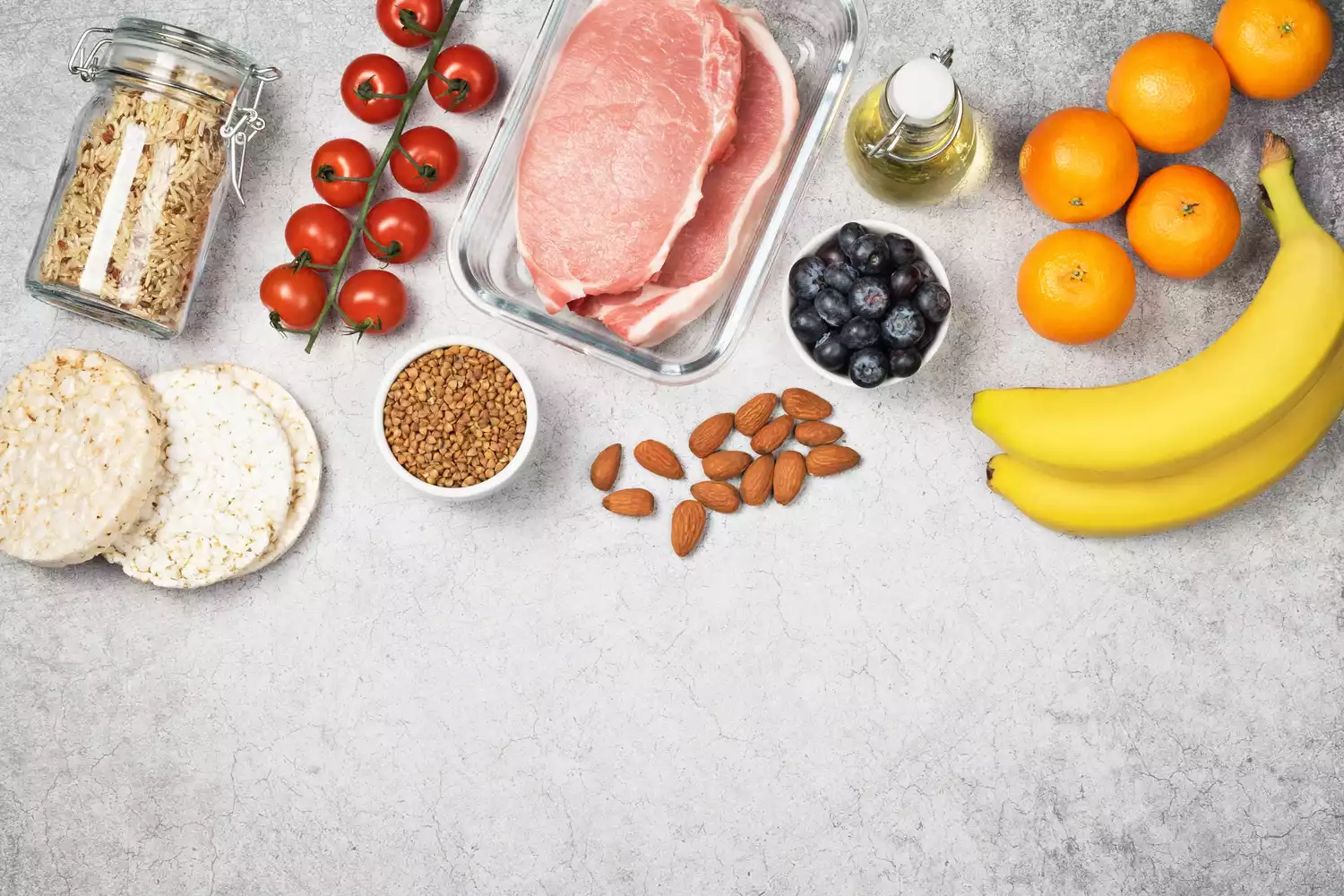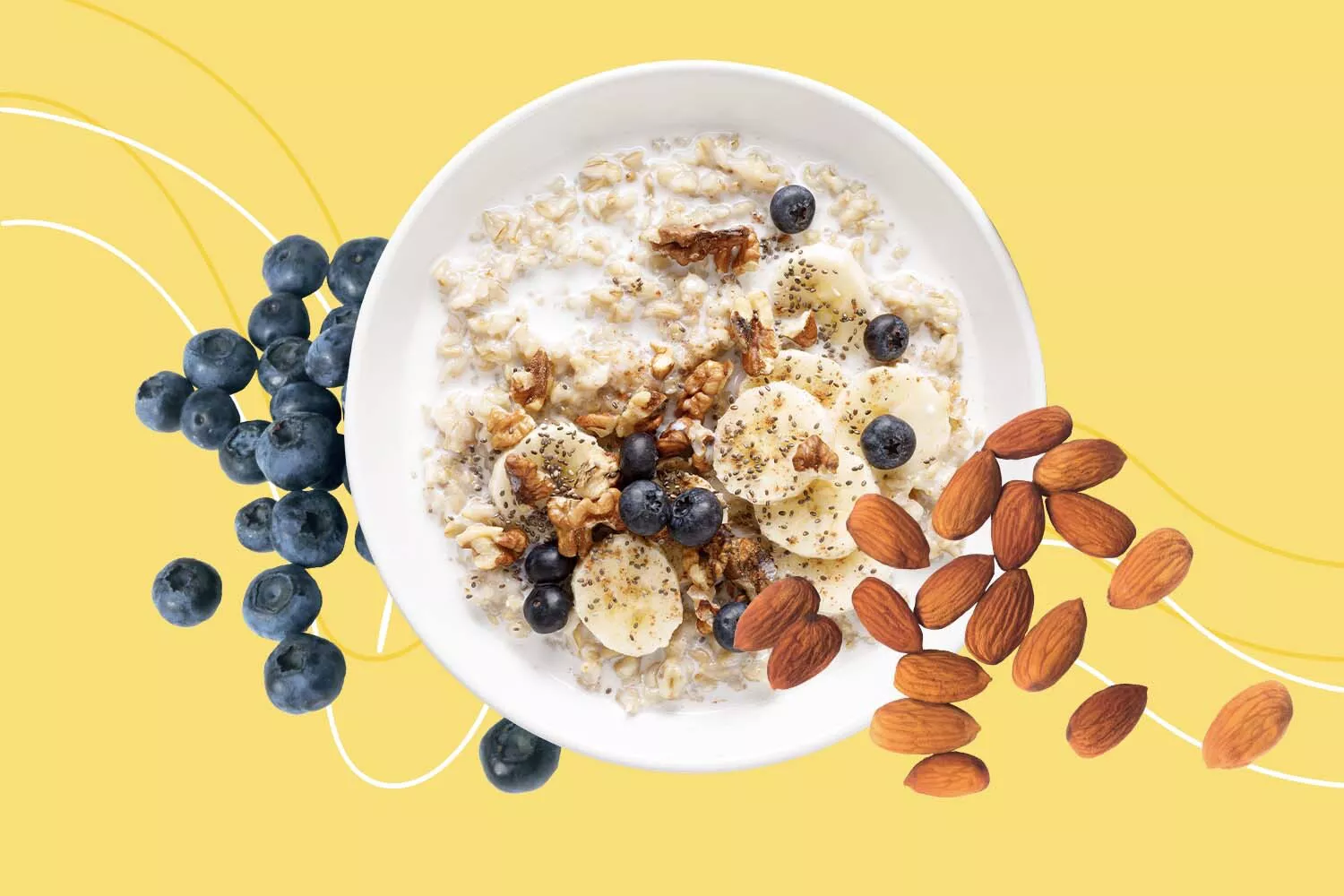Nourishment is a vital part of any type of diabetes monitoring plan.1 Nonetheless, you do not need to follow a complex dish plan for diabetes mellitus that omits all of your favorite foods in order to regulate your diabetes. Your meal strategy must include a selection of healthy choices from all the food teams in amounts that work best for you, your health and wellness, and your diabetes.1.
National Institute of Diabetes Mellitus and Digestive System and Kidney Illness. Diabetic issues diet plan, eating, and physical activity.
Since nourishment plays such a big component in diabetes administration, having a prefabricated 7-day dish strategy with carbohydrate control in mind is a fantastic method to stay on track. It additionally takes out the stress and anxiety of needing to find out what to eat, aiding you handle your nutrition also when your routine is packed with events.
Meal planning can help keep you on the right track, regardless of what your nourishment objective is. Prepping and intending doesn’t need to be time-intensive and complicated. A couple of straightforward steps, including fundamental meal constructs, making a wish list, purchasing strategically, and systematically preparing food beforehand, are what make meal planning a practical device to maintain you invigorated, satisfy your nourishment goals, minimize food waste, and conserve money.
Why Nutrition is Important on a Diabetic Dish Strategy.
Nourishment is essential on a diabetic person dish plan due to the strong link between food options and blood sugar level action. What you consume doesn’t cause diabetes. However, diabetes mellitus impacts how your body makes use of sugar, which is your main source of power and originates from the food you eat.2.
Though there’s no person sort of diabetic person meal strategy, a lot of plans aim to regulate the variety of carbohydrates you access each meal and treat.1 Carbohydrates come from numerous types of foods, including grains, fruits, starchy vegetables, and milk foods like milk and yogurt. Foods with added sugar are also a source of carbs.
Carbs break down right into glucose.1 Controlling the number of carbohydrates you consume throughout the day assists maintain blood glucose levels. The quantity of carbs you eat at each dish or treat depends upon your details tastes and lifestyle.
Keep in mind that this consuming strategy is made for those with kind 2 diabetes and is to be made use of alongside your medicine. It is essential to deal with your doctor or a signed up dietitian for private support and to develop a meal plan that fulfills your nourishment needs.
7-Day Sample Menu.
This one-week dish strategy was created for a person who needs about 1,800 to 2,000 calories each day and contains a healthy and balanced mix of carbs, fat, and healthy protein. Daily of this diabetic meal plan includes 3 meals and 3 snacks. Each dish consists of regarding 45 to 60 grams of carbohydrates and each snack has about 15 to 30 grams of carbs, or roughly 50% of calories from carbohydrates.
Your day-to-day calorie objective may vary. Discover what it is below, then make tweaks to the strategy to fit your particular needs. Consider working with a registered dietitian or consulting with a doctor to evaluate and prepare for your dietary demands much more accurately.
The Dietary Standards for Americans suggest consuming a well balanced diet that offers 10% to 30% of calories from protein, 45% to 65% of calories from carbs, and 25% to 35% from fat. The guidelines likewise suggest that at least half of your overall grains taken in be entire grains. Some examples of foods containing whole grains are whole grain bread, pasta, grain, tortillas, gris, and extra.3.
When it concerns diabetic issues, balancing your carbohydrates is crucial to blood sugar control.4 Nevertheless, the portion of calories from carbohydrates on your diabetic person dish plan might rely on your tastes, budget plan, lifestyle, and goals.
It’s alright to swap out comparable foods on the diabetic person dish strategy, such as an apple for a banana. Nonetheless, swapping out a dish of blended environment-friendlies for a bag of potato chips won’t work because it adds a lot of carbs, fat, and calories and does not have adequate fiber.
Fiber is likewise vital when considering your well balanced meals. The nutritional standards for Americans advise taking in 14 grams of fiber for every single 1,000 calories based on a 2,000-calorie diet, that would be 28 grams. Fiber slows food digestion, stopping sugar spikes in the blood.5.
If you are not utilized to consuming a high-fiber diet, start slow; or else, you might go to higher danger for gassiness, bloating, and irregularity. These signs and symptoms are especially real from foods with fiber added or fiber supplements.
Keep in mind that the nourishment realities for this meal plan listed here do not include fiber. However, fiber is an integral component to any dish strategy, and specifically for diabetes. Fiber aids to promote satiety and may boost glycemic control.6.
Day 1.
Morning meal.
Over night berry oats (1/2 mug steel cut oats, 1 cup nonfat milk, 1/2 mug combined berries, 1 tablespoon ground flaxseeds, 1 tbsp unsalted baked almonds sliced).
Macronutrients: roughly 369 calories, 18 grams of protein, 52 grams of carbohydrates, and 11 grams of fat.
Treat.
8 100% whole-grain crackers.
1 ounce low-fat cheddar cheese.
Macronutrients: approximately 208 calories, 11 grams of healthy protein, 27 grams of carbohydrates, and 7 grams of fat.
Lunch.
Veggie pita sandwich (one (regarding 6-inch size) 100% whole-wheat pita bread, 3 tbsps hummus, 1/2 cup baked eggplant, 1/2 cup baked red and eco-friendly peppers, 1/4 avocado, 1 tablespoon saltless sunflower seeds).
Macronutrients: roughly 403 calories, 13 grams of protein, 57 grams of carbohydrates, and 17 grams of fat.
Treat.
One 6-ounce container nonfat ordinary Greek yogurt.
1/2 tool banana.
4 walnuts, sliced.
Macronutrients: around 201 calories, 12 grams of protein, 28 grams of carbs, and 6 grams of fat.

Supper.
3 ounces roasted poultry breast without skin.
One serving baked potatoes.
1 cup baked Brussel sprouts seasoned with 1 teaspoon olive oil.
Macronutrients: around 552 calories, 28 grams of healthy protein, 46 grams of carbs, and 29 grams of fat.
Treat.
2 slices 100% whole-wheat salute.
1 tbsp almond butter.
Macronutrients: approximately 260 calories, 11 grams of protein, 30 grams of carbohydrates, and 11 grams of fat.
Daily amounts to: approximately 1,993 calories, 93 grams of healthy protein, 239 grams of carbs, and 82 grams of fat.
Note that drinks are not consisted of in this dish strategy. Specific fluid demands differ based upon age, sex, task level, and case history. For ideal hydration, specialists normally suggest drinking roughly 9 cups of water daily for ladies and 13 cups of water daily for males.7 When including beverages to your dish strategy, consider their calorie count. Objective to minimize or get rid of usage of sugar-sweetened drinks, and opt for water when feasible or beverages containing sugar alternatives.
Day 2.
Morning meal.
1 cup 100% whole-wheat, bitter, ready-to-eat grain.
1 cup nonfat milk.
1 medium peach.
10 saltless roasted almonds.
Macronutrients: around 324 calories, 16 grams of protein, 50 grams of carbs, and 9 grams of fat.
Treat.
One hard-boiled egg lightly sprayed with every little thing bagel flavoring.
1-ounce unsalted crackers.
Macronutrients: approximately 187 calories, 9 grams of protein, 23 grams of carbohydrates, and 6 grams of fat.
Lunch.
Turkey sandwich (3 ounces delicatessens turkey, 2 pieces 100% whole-wheat bread, 1 slice tomato, alfalfa sprouts, grated carrots, 1/4 avocado, 1 tsp honey mustard).
1/2 cup blueberries.
Macronutrients: roughly 422 calories, 22 grams of healthy protein, 54 grams of carbs, and 15 grams of fat.
Treat.
3 cups air-popped snacks seasoned with 1 tablespoon of dietary yeast.
One low-fat string cheese.
Macronutrients: about 205 calories, 13 grams of protein, 22 grams of carbohydrates, and 8 grams of fat.
Dinner.
3 ounces broiled pork cut.
1/2 mug unsweetened applesauce.
3/4 cup wild rice cooked in low-sodium chicken broth.
3 cups raw spinach sauteed in 1 tsp of olive oil and 1 teaspoon of garlic.
Macronutrients: approximately 452 calories, 28 grams of protein, 52 grams of carbs, and 15 grams of fat.
Snack.
1/4 cup hummus.
1/2 mug cut cucumbers, 1/4 mug carrot sticks, and two celery stalks.
One half 6-inch 100% whole-wheat pita.
Macronutrients: about 218 calories, 9 grams of healthy protein, 34 grams of carbohydrates, and 7 grams of fat.
Daily Totals: roughly 1,808 calories, 97 grams of healthy protein, 235 grams of carbohydrates, and 60 grams of fat.
Day 3.
Breakfast.
Spinach omelet (one entire egg, 2 egg whites, 1 mug fresh spinach, 1/2 cup chopped tomatoes, 1/2 ounce of Swiss cheese).
One 100% whole-wheat English muffin toasted and covered with 1 tablespoon almond butter.
Macronutrients: around 416 calories, 28 grams of protein, 35 grams of carbohydrates, and 20 grams of fat.
Treat.
1/2 mug low-fat cottage cheese.
1 cup cubed cantaloupe.
Macronutrients: about 144 calories, 14 grams of healthy protein, 18 grams of carbohydrates, and 3 grams of fat.
Lunch.
Smoked chicken salad (3 ounces grilled hen breast, 3 cups mixed eco-friendlies, 2 tablespoons sliced red onions, 1/4 cup grated carrots, 1/2 mug cut cucumbers, 1 tbsp entire flaxseeds, and 2 tablespoons vinaigrette clothing).
1 small orange.
Eight 100% whole-grain biscuits.
Macronutrients: around 508 calories, 34 grams of healthy protein, 56 grams of carbohydrates, and 19 grams of fat.
Treat.
2 tbsps cinnamon baked chickpeas (chickpeas seasoned with olive oil and cinnamon prior to roasting).
Unsweetened cappuccino made with 1 cup nonfat milk.
Macronutrients: about 188 calories, 12 grams of healthy protein, 27 grams of carbs, and 4 grams of fat.
Dinner.
One serving Honey-Mustard Herbed Salmon.
1 tool sweet potato topped with 2 tbsps nonfat Greek yogurt and 1/4 cup reduced sodium black beans.
1 mug roasted broccoli (made with 1 tsp olive oil).
Macronutrients: about 527 calories, 38 grams of protein, 47 grams of carbs, and 22 grams of fat.
Snack.
1 tool apple.
1 ounce low-fat cheddar cheese.
Macronutrients: around 144 calories, 7 grams of healthy protein, 26 grams of carbs, and 2 grams of fat.
Daily Totals: around 1,928 calories, 134 grams of protein, 209 grams of carbohydrate, and 70 grams of fat.
Day 4.
Morning meal.
Morning meal smoothie mix (1/2 cup soft tofu, 1 tiny banana, 1/2 cup blueberries, 1/2 cup cut strawberries, and 1 tsp peanut butter combined with ice).
One hard-boiled egg.
Macronutrients: around 370 calories, 22 grams of healthy protein, 43 grams of carbs, and 15 grams of fat.
Snack.
1/2 of a turkey sandwich (one piece 100% whole-wheat bread, 1 1/2 ounces deli turkey, lettuce, tomato, and 1 tsp honey mustard).
1 small orange.
Macronutrients: approximately 207 calories, 11 grams of protein, 32 grams of carbs, and 5 grams of fat.
Lunch.
Tuna wrap (3-ounce can water-packed albacore tuna, 1/2 stalk of celery, 2 tablespoons cut red onion, 1/4 cup nonfat simple Greek yogurt, one 100% whole-wheat 6-inch tortilla).
20 grapes.
Macronutrients: roughly 453 calories, 48 grams of protein, 43 grams of carbohydrates, and 9 grams of fat.
Snack.
1 ounce unsalted, baked almonds (22 bits).
1/4 mug unsweetened dried out mixed fruit (raisins, sliced figs, dried apples).
Macronutrients: around 187 calories, 4 grams of healthy protein, 32 grams of carbs, and 7 grams of fat.
Dinner.
3 ounces barbequed sirloin steak.
1 medium baked potato with 2 tbsps nonfat Greek yogurt and chives.
1 mug sliced mushrooms sauteed in 1 tbsp of olive oil.
Macronutrients: around 555 calories, 33 grams of protein, 48 grams of carbs, and 27 grams of fat.
Snack.
1-ounce offering dark delicious chocolate (70% chocolate).
Macronutrients: approximately 170 calories, 2 grams of protein, 13 grams of carbohydrates, and 12 grams of fat.
Daily Overalls: approximately 1,942 calories, 120 grams of protein, 212 grams of carbs, and 75 grams of fat.
Day 5.
Morning meal.
Breakfast sandwich (one scrambled egg, one 100% whole-wheat English muffin toasted, 1 ounce low-fat cheddar cheese, 1 teaspoon dijon mustard).
Two tangerines.
Macronutrients: roughly 391 calories, 21 grams of protein, 51 grams of carbs, and 13 grams of fat.
Snack.
One 6-ounce container of nonfat plain Greek yogurt.
1/2 medium banana.
10 unsalted baked almonds.
Macronutrients: approximately 269 calories, 17 grams of protein, 37 grams of carbs, and 7 grams of fat.
Lunch.
One serving Vegetarian Southwest Quinoa Salad.
3 cups combined environment-friendlies covered with 1/2 mug cut cucumbers, 1/2 mug sliced green and red peppers, 1/4 mug grated carrots, 2 tbsps unsalted sunflower seeds, and 2 tbsps apple cider vinaigrette dressing.
Macronutrients: approximately 487 calories, 15 grams of protein, 55 grams of carbs, and 26 grams of fat.
Treat.
1/4 cup hummus.
1/2 mug carrot sticks and 1/2 mug celery sticks.
4 100% whole-grain biscuits.
Macronutrients: around 216 calories, 8 grams of protein, 30 grams of carbs, and 9 grams of fat.
Dinner.
Fish tacos (4 ounces prepared white fish, shredded red cabbage, julienned jicama, red onions, tomato salsa, newly pressed lime, and 2 little (4-inch) corn tortillas).
One ear of smoked corn on the cob.
Macronutrients: about 393 calories, 33 grams of protein, 53 grams of carbs, and 6 grams of fat.
Treat.
1 medium apple.
1 tablespoon peanut butter.
Macronutrients: approximately 189 calories, 4 grams of protein, 29 grams of carbs, and 8 grams of fat.
Daily Totals: around 1,945 calories, 102 grams of protein, 255 grams of carbs, and 69 grams of fat.
Day 6.
Morning meal.
Overnight fruit and nut oats (1/2 cup rolled oats, 1 mug nonfat milk, 2 tbsps raisins, 1 tbsp chia seeds, 4 walnut fifty percents cut, dash of cinnamon).
Macronutrients: approximately 392 calories, 17 grams of healthy protein, 58 grams of carbohydrates, and 12 grams of fat.
Treat.
1/4 quarter avocado mashed offered on one slice 100% entire wheat bread.
20 grapes.
Macronutrients: about 229 calories, 6 grams of protein, 36 grams of carbs, and 9 grams of fat.
Lunch.
One serving hen noodle soup.
3 cups mixed eco-friendlies topped with four grape tomatoes, one medium piece red onion, 1/4 mug grated carrots, 1/2 cup cucumbers, alfalfa sprouts, and 1/2-ounce shredded low-fat cheddar cheese with 2 tbsps of balsamic vinaigrette dressing.
Macronutrients: around 456 calories, 21 grams of healthy protein, 54 grams of carbs, and 17 grams of fat.
Treat.
1 cup 100% whole-wheat, unsweetened, ready-to-eat cereal.
1/2 cup low-fat milk.
Macronutrients: about 105 calories, 7 grams of healthy protein, 27 grams of carbohydrates, and 3 grams of fat.
Dinner.
Baked poultry parmesan (4-ounce poultry cutlet, 2 tablespoons 100% whole wheat bread crumbs, 2 tablespoons marinara sauce, 1 ounce shredded low-fat mozzarella cheese).
1 cup whole-wheat pastas with 2 tablespoons marinara sauce and a sprinkling of parmesan cheese.
1 mug steamed broccoli.
Macronutrients: approximately 561 calories, 39 grams of protein, 57 grams of carbs, and 22 grams of fat.
Snack.
1/2 mug routine vanilla gelato.
1/2 mug cut strawberries.
Two walnut fifty percents cut.
Macronutrients: around 190 calories, 3 grams of protein, 23 grams of carbs, and 10 grams of fat.
Daily Overalls: about 1,935 calories, 94 grams 0f healthy protein, 254 grams of carbs, and 72 grams of fat.
Day 7.
Morning meal.
Warm banana nut oats (1/2 mug steel reduced oats prepared in 1 mug nonfat milk with 1 tablespoon almond butter topped with pieces 1/2 medium banana).
Macronutrients: roughly 387 calories, 18 grams of protein, 56 grams of carbohydrates, and 12 grams of fat.
Treat.
8 whole-grain crackers.
1 ounce low-fat cheddar cheese.
Macronutrients: roughly 208 calories, 11 grams of healthy protein, 27 grams of carbs, and 7 grams of fat.
Lunch.
Shrimp stir fry (3 ounces peeled off shrimp sauteed with 1/2 mug red and green peppers, 1/2 mug cut onions, fresh ginger, 1 tbsp vegetable oil, and 1 tsp low-sodium soy sauce).
1 mug cooked wild rice.
Macronutrients: around 507 calories, 26 grams of healthy protein, 63 grams of carbohydrates, and 17 grams of fat.
Treat.
1/2 cup low-fat cottage cheese.
1/2 cup bitter canned pineapple crammed in its own juice.
Macronutrients: approximately 160 calories, 14 grams of healthy protein, 21 grams of carbohydrates, and 3 grams of fat.
Dinner.
One offering Mexican Poultry Verde Quinoa Casserole.
2 mugs romaine lettuce covered with one sliced up radish, 1/4 mug sliced jicama, and one piece tomato with 1 tablespoon cilantro lime vinaigrette dressing.
Macronutrients: around 514 calories, 40 grams of protein, 43 grams of carbs, and 19 grams of fat.
Snack.
1 little pear.
1/2 ounce saltless blended nuts.
Macronutrients: about 169 calories, 3 grams of protein, 26 grams of carbs, and 8 grams of fat.
Daily Total amounts: approximately 1,986 calories, 112 grams of protein, 236 grams of carbohydrates, and 66 grams of fat.
Exactly How to Dish Plan for a Diabetic Diet plan.
Consist of a variety of nutrient-rich foods. Any type of meal prepare for diabetic issues need to consist of a mix of nutrient-rich foods from all food groups, including fruits, veggies, whole-grains, healthy proteins, and healthy fats.1.
Know your carbohydrates. Fruits, grains, starchy vegetables (potatoes, peas), and dairy products foods like milk and yogurt are the primary sources of carbs in a balanced diet plan.4 Highly-processed foods like packaged sweet, cookies, and cakes likewise have carbohydrates.
Usage food labels to track carbohydrates. Utilize the Nutrition Details tag on packaged foods to help track and count carbs. Or, try a food monitoring application.
Try home plate method. You can use the plate approach as a meal planning device instead of counting carbohydrates. For home plate approach, fill half your plate with non-starchy vegetables, 1/4 of the plate with a high-fiber carbohydrate, and 1/4 of the plate with a healthy and balanced protein.8 For example, half your plate with roasted broccoli and cauliflower, one-quarter of the plate with a baked wonderful potato, and the other quarter with baked chicken breast. Utilize a 9-inch plate to keep parts in check.9.
Eat about the same quantity of food around the exact same time each day. When adhering to a diabetic person dish strategy, uniformity helps with blood sugar control. You do not have to consume the very same foods all the time, but consuming concerning the very same quantity of food around the exact same time assists keep blood sugar degrees also. The kind of drug you take to handle your diabetic issues might figure out the versatility of your meal plan.8 With some medicines, delaying or missing a dish, or too much fiber with little carbohydrates, may cause blood sugar numbers to fall too reduced.8.
Limitation foods high in sugarcoated, salt, and unhealthy fats (saturated and trans fat). No food is out-of-bounds on a diabetic meal strategy. Nevertheless, you need to restrict deep-fried foods, foods with a great deal of added sugar and salt, and sugary foods.1 These foods provide a great deal of calories and carbs without a lot of nourishment.


